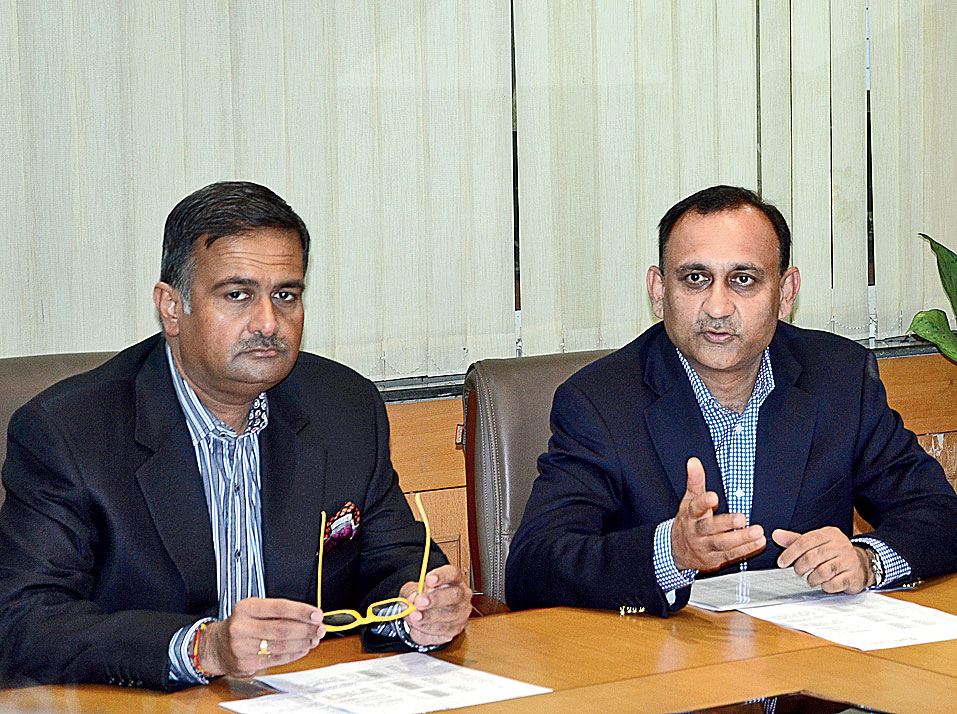A week before seeking a reappointment to the board at the annual general meeting of shareholders, Usha Martin Ltd (UML) promoter and non-executive director Prashant Jhawar has stepped down.
The resolution seeking Prashant’s reappointment was listed as an ordinary resolution requiring a simple majority to be passed. Earlier this year, a special resolution for the reappointment of his father, Basant Kumar Jhawar, had failed to garner enough support at an extraordinary general meeting of the shareholders.
If the voting result of that resolution is any indicator, Prashant may have found it difficult to return to the board of steel wire and wire rope maker Usha Martin Ltd, which is managed by his warring cousin brother Rajeev Jhawar, the managing director of the company.
Basant Kumar needed to get the support of 75 per cent of the shareholders to remain on the board — the resolution on his reappointment was a special one because he’s more than 75 years of age — but received just 32.70 per cent votes, while 67.30 per cent opposed his reappointment.
Promoter holding in Usha Martin is 49.91 per cent as on July 31, 2019, and is broadly divided equally between Basant Kumar and his son Prashant; and Brij Kishore Jhawar and his son Rajeev. The voting result showed the public shareholders had also voted against the resolution, apart from the Brij Kishore-Rajeev faction.
The two families have fallen out over the control and management of Usha Martin which went into a debt trap before escaping miraculously by selling its primary steel division to Tata Steel earlier this year.
The spat became public after Prashant was removed as the non-executive chairman of UML, based in Calcutta, at the insistence of lead lender State Bank of India on April 2017.
Since then the Prashant Jhawar-faction has filed several cases against Rajeev and the company in various forums, including the National Company Law Tribunal and high courts, alleging oppression and mismanagement of the affairs of the company. The cases are ongoing.
In his resignation letter to the board, Prashant again highlighted “several illegalities” of Rajeev Jhawar and he blamed the independent directors on the board for their “apparent apathy” to take corrective action.
After his resignation, the BK-PK family will have a significant shareholding in UML but no voice on the board.
Prashant accused the MD of embezzlement of funds from the company and referred to a provisional attachment order by the Enforcement Directorate in August. The ED provisionally attached assets worth Rs 190 crore of the wire and wire rope plant in a case relating to the sale of iron ore in the open market from a captive mine.
The ED said UML could not have sold the ore because the condition attached to the grant of the licence mandated extraction and use for own purpose only.
“Due to the above facts and proceedings, I would not be able to continue as non executive director of the company and, thus, I hereby tender my resignation without prejudice to my rights and contentions,” Prashant Jhawar, who lives in London, wrote in his letter addressed to the board of directors.
He claimed to have sought urgently a board meeting to discuss the attachment order but it did not take place. A meeting of the board is, however, slated for next Saturday, that is September 21, prior to the AGM.
He claimed the attachment order may have significant implications for Tata Sponge Iron Ltd, which has taken over the iron ore mine while purchasing the steel plant from UML earlier this year.
BK-PK is understood to have reached an informal agreement to sell their stake in UML in favour of Tata Steel or any of its subsidiary, but the deal appears to be stuck.
Tata Steel subsidiary Tata Sponge acquired the steel division of UML and took control of the producing iron ore mine and a coal mine, which is under development for Rs 4,525 crore.
The deal completely deleveraged UML, sans some working capital debt, and the lenders did not have to take any haircut on either the principal or interest, unlike in debt resolutions carried out by financial institutions under the Insolvency & Bankruptcy Code, 2016. In many NCLT cases, 30-40 per cent haircut was witnessed in steel assets.
The Tata deal came at an opportune time for UML as the steel market crashed soon thereafter and large integrated players lost some appetite for fresh acquisitions.










